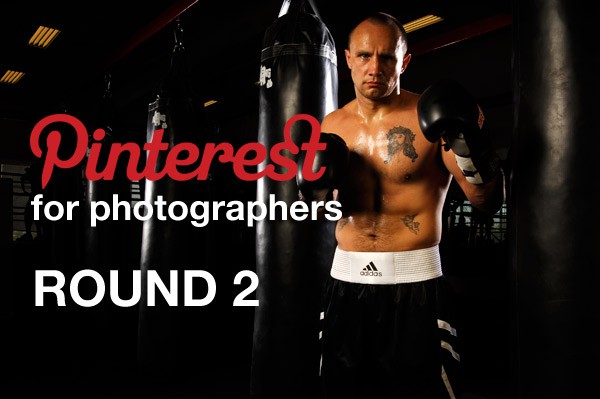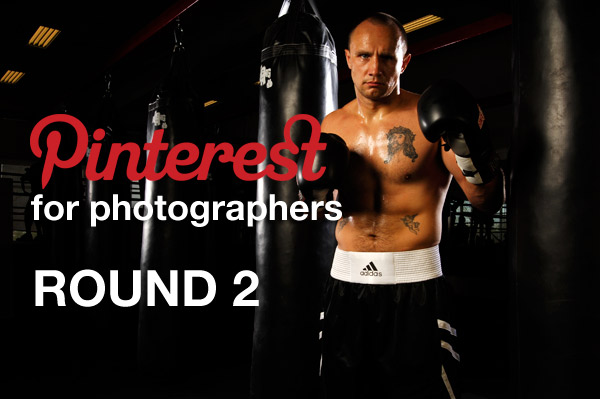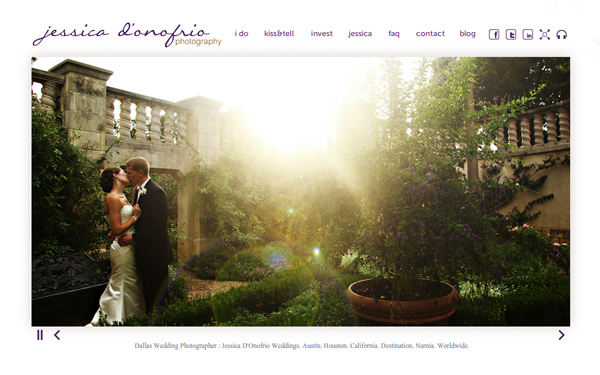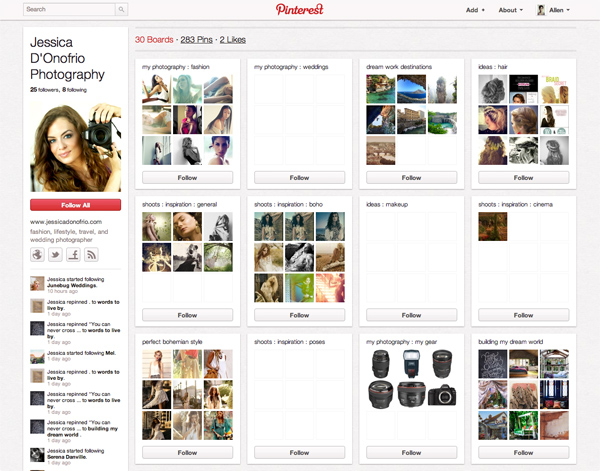Share
Pinterest is Still Not for Photographers: Round 2
Whew. People got riled up by my first post entitled “Hey Photographers! Pinterest is Not for You” and the feedback on the blog, Facebook and Tw...

Whew. People got riled up by my first post entitled “Hey Photographers! Pinterest is Not for You” and the feedback on the blog, Facebook and Twitter provided some great discussion points worth commenting on.
First and foremost, a small minority of people thought I was making a sexist statement. I wasn’t. I am not taking a sexist position about photography being a male pursuit, and that women only care about fluffy things. Some of my favorite photographers are women, half of our staff are women, and even my mom is a woman. Also: I like to wear scarves. Ok, now that that is out of the way…
- I presented the gender skew because it matters in understanding the psychographic make-up of the audience (If this wasn’t relevant, we wouldn’t have Gentlemint)
- The order in which I presented the stats wasn’t implying hierarchy, it was the order in which the information was presented by Google AdPlanner.
- Explaining which categories are thriving on Pinterest helps to frame user intent.
- I cannot competently comment on international usage. It’s very hard for us to see those analytics.
The thesis of my entry had nothing to do of whether a virtual pin board is a good idea or not. It had to do with whether Pinterest can act as a business tool to drive revenue for photographers. Why did I pick this aspect? Because retailers are driving revenue on Pinterest. They have found a way to monetize the pinning behavior of their audience to drive traffic and revenue. And savvy pinners have signed up with affiliate programs to make money from their pinning.
I completely agree with the commenters who stated:
- It’s a great tool as a mood board.
- It’s a great tool of self-expression that allows clients and potential clients to gain insight into your taste.
- It seems to be popular with wedding photographers.
- A few superstar photographers have benefitted immensely from it.
- The service is nascent and evolving, and we cannot predict how it will be used in the future
A number of commenters pointed out the point isn’t to sell directly. That’s fine. I accept that point of view. If that’s the case, we need to recognize Pinterest as a “top of the funnel” tool that is designed lead generation mechanism. You’re not necessarily collecting emails off the thing, but you are creating visibility for your business via pins, repins, likes and follows. It’s great to have a big sales funnel, and we should always be working on widening the top of the funnel. But if you’re not continually improving your conversion in the middle and bottom of the funnel, then you aren’t building new clients.
- If you’re getting lots of repins, but people are only using your images for “inspiration” (and not hiring you), then it has dubious business value.
- If you’re getting referral traffic, but that’s not translating into bookings or sales, then it has dubious business value.
It’s not good enough to measure your business simply by saying I have 5,000 hits, 1000 Facebook Likes, 800 Twitter followers, and 560 repins. Those are just statistics. It doesn’t represent qualified traffic. Unless you are tracking conversion of those statistics into paying clients, you’re giving yourself a false sense of security over the real metrics that drive your business. If you’re using it as a post-sale tool (e.g. the client hired you, and now you’re both pinning ideas for a shoot), then you’re using Pinterest in a way that is in support of, but not creating new business. Don’t tell me that “but it’s raising awareness and one day it’ll pay off.” Show me the numbers that substantiate that claim.
Pinterest for Wedding Photographers
Jessica D’Onofrio, a Dallas-based fashion, lifestyle and wedding photographer e-mailed me to explain how she was using the service. She has been using Pinterest as a way to collect inspiration for brides after they’ve hired her. But, because the brides have followers themselves, the pinboard has become a source of additional leads for her business.
“I create a pinboard that I invite said client to join where she can pin her inspiration for a shoot, or for the wedding day…all of her Facebook girlfriends sign up and ‘follow’ her board (in essence also following me.) While not my original intent, I HAVE received solid leads from this. And perhaps the fact it was not the original intent is why it worked…I think if they just post a big display of their personal images and expect the rest of the work to be done by repins, they’re missing the point. It needs to be something they’re using in an interactive format that includes participation from brides, friends, and other like minded demographics. It’s a dialogue, not a monologue.”
If every wedding client who uses Pinterest leads to another client, then I would say this is a highly productive ROI (return on investment). It doesn’t require her to change what she’s doing because she’s already using Pinterest as an customer engagement tool. And if the network effect leads to 5 leads, and 20% convert into clients (I’m making some big assumptions based on word of mouth referrals), then it’s a huge win, and a major step in the right direction in using Pinterest for the business of photography.
Conclusion
We spend a lot of time trying to help photographers understand how to use emerging technologies to improve their business, and we also spend a lot of time educating photographers on business concepts that we use to grow our own business. One of the benefits of running a website service used by so many photographers is that we can see website analytics in aggregate. So I know definitively that Facebook and Stumbleupon drive significantly more traffic than Twitter and Pinterest. I also know that the sales conversion through Facebook is much higher than Pinterest across all the PhotoShelter websites.
When people respond with “Trey Ratcliff gets 15% of his traffic from Pinterest,” I feel really happy for him. But he’s an outlier. He’s a very successful photographer who has a large online following. He’s also a master marketer. You are not Trey or Jasmine Starr. Your audience isn’t other photographers. We’re trying to provide information that we think can be used by the 99%, which is likely you.
Nothing would make me happier than to find another great source of referral traffic that increases sales. So if you’re finding that Pinterest is driving jobs and sales, let us know like Jessica did. We’ll be more than happy to spread the word.





